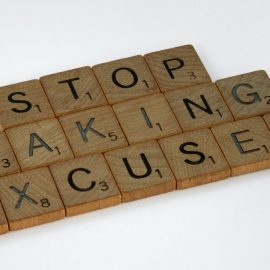

This article is an excerpt from the Shortform book guide to "From Strength to Strength" by Arthur C. Brooks. Shortform has the world's best summaries and analyses of books you should be reading.
Like this article? Sign up for a free trial here.
Do you deliberately cultivate eulogy virtues? What does it mean to succeed, especially in the second half of your life?
Naturally, your career and life morph as you get older. Management expert Arthur Brooks recommends that you change your idea of “success” from career achievement and material wealth to happiness and fulfillment. Rather than career success, this is life success, and it’s a way to continue thriving as you age.
Continue reading to learn how to make the switch from a focus on “résumé virtues” to a focus on “eulogy virtues.”
Your Eulogy Virtues
One way to pursue life success is to start prioritizing what Brooks calls eulogy virtues—so-called because they’re qualities that people might talk about at your funeral.
Eulogy virtues might include always helping people who need it, standing by your loved ones during difficult times, or lighting up a room with your unique sense of humor. Note that, rather than one-time achievements, these tend to be character traits and lifestyle choices; in other words, things that you do continuously throughout your life. These are things that will bring you lasting happiness and fulfillment.
(Shortform note: Robin Sharma’s book Who Will Cry When You Die? offers one possible method for prioritizing your eulogy virtues: View every single day as if it were a micro-version of your whole life. If the way you live today reflected the way you live your entire life, what would you do with your 24 hours? Would you mindlessly chase after success or devote time to cultivating your eulogy virtues—to improving the lives of those around you?)
In contrast, many people (especially young people) tend to focus on their résumé virtues. These are accomplishments that you might use to impress others—for example, holding a prestigious job title, winning a world-class competition, or earning a degree from a highly selective school.
Brooks says that these kinds of accomplishments only bring you fleeting, worldly rewards like money or fame. Furthermore, those rewards fade quickly unless you keep accomplishing more and more—which, remember, will become more difficult as you age. Anything that requires you to compete against or compare yourself to others probably falls into this category.
| Why Are We Driven to Compete With Others? If competing with others only brings fleeting rewards, why are we so driven to do it? One possible explanation is that it’s an evolutionary holdover—in other words, competitiveness may be coded into our genes because our ancestors had to compete with each other for food, shelter, and mates. However, as biologist Richard Dawkins says in The Selfish Gene, humans aren’t slaves to their genetic programming; we’re unusual (possibly unique) in our ability to consciously choose to go against our biological drives. For example, our genes should compel us to have as many children as possible, but many people choose not to have children at all. Therefore, we can still follow Brooks’s advice and choose to pursue eulogy virtues over competition-based rewards. |

———End of Preview———
Like what you just read? Read the rest of the world's best book summary and analysis of Arthur C. Brooks's "From Strength to Strength" at Shortform.
Here's what you'll find in our full From Strength to Strength summary:
- Why our professional skills start to decline as we get older
- How second half of your life can be even happier than the first
- How to find a new career path that suits your changing skill set






